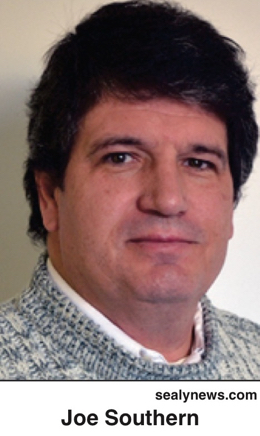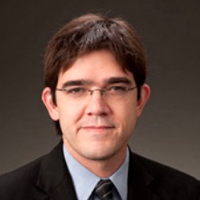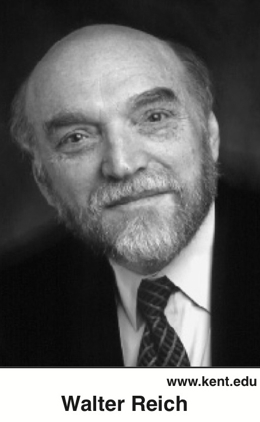Rascals case in brief
In the beginning, in 1989, more than 90 children at the Little Rascals Day Care Center in Edenton, North Carolina, accused a total of 20 adults with 429 instances of sexual abuse over a three-year period. It may have all begun with one parent’s complaint about punishment given her child.
Among the alleged perpetrators: the sheriff and mayor. But prosecutors would charge only Robin Byrum, Darlene Harris, Elizabeth “Betsy” Kelly, Robert “Bob” Kelly, Willard Scott Privott, Shelley Stone and Dawn Wilson – the Edenton 7.
Along with sodomy and beatings, allegations included a baby killed with a handgun, a child being hung upside down from a tree and being set on fire and countless other fantastic incidents involving spaceships, hot air balloons, pirate ships and trained sharks.
By the time prosecutors dropped the last charges in 1997, Little Rascals had become North Carolina’s longest and most costly criminal trial. Prosecutors kept defendants jailed in hopes at least one would turn against their supposed co-conspirators. Remarkably, none did. Another shameful record: Five defendants had to wait longer to face their accusers in court than anyone else in North Carolina history.
Between 1991 and 1997, Ofra Bikel produced three extraordinary episodes on the Little Rascals case for the PBS series “Frontline.” Although “Innocence Lost” did not deter prosecutors, it exposed their tactics and fostered nationwide skepticism and dismay.
With each passing year, the absurdity of the Little Rascals charges has become more obvious. But no admission of error has ever come from prosecutors, police, interviewers or parents. This site is devoted to the issues raised by this case.
On Facebook
Click for earlier Facebook posts archived on this site
Click to go to
Today’s random selection from the Little Rascals Day Care archives….
Click for earlier Facebook posts archived on this site
Click to go to
Today’s random selection from the Little Rascals Day Care archives….
When millions believe in alien abduction….
Jan. 25, 2013
“With regard to recovered memories, ritual abuse charges and multiple personalities, the tide seems to have turned. Courts are continuing to reverse decisions…The Edenton Seven have been released from prison…. Yet many of these people’s lives have been wrecked by false allegations….
“If, as some polls claim, millions of Americans believe in alien abduction, we have a long way still to go before credulity, superstition and hysterical epidemics are on the wane…”
– From “Hystories: Hysterical Epidemics and Modern Media” by Elaine Showalter (1998)
How one young reporter changed his mind
 Nov. 8, 2014
Nov. 8, 2014
“In the summer of 1989, I accepted my first job at a daily paper when The Daily Advance hired me to cover a two-county beat – Chowan and Perquimans. When I arrived, Bob Kelly had just been arrested and charged in about a dozen cases. My editor told me about it, almost in passing, and said, ‘You might want to keep an eye on it.’ I did, and for the next two years it consumed my life.
“I was 24 years old with a wife of two years and no children. I had no experience reporting on police and courts and was very naive as to how the system worked. As the case expanded I became convinced of the defendants’ guilt. Their lawyers wouldn’t let them talk and they were hard to reach in jail. Prosecutors were also tight-lipped, but some of the parents couldn’t stay that way.
“For two years all I had to go on were the stories of parents and what I believed to be a mountain of evidence in the hands of prosecutors. Shortly before Bob’s trial began, three important things happened. I finally got to interview two of the defendants (Robin Byrum and Scott Privott). Their stories were very convincing and I was no longer certain of their guilt. I was also promoted to an editing position and was no longer actively reporting on the case. I was in charge of the reporters who would. Also at this time the ‘Frontline’ show came out, pretty much blowing the lid off the prosecution’s case.
“As Bob Kelly’s trial unfolded, I found that the prosecution had little to no evidence. My faith in the case was weakened and I was surprised when Bob was convicted. Then another defendant (Dawn Wilson) fell and Bob’s wife Betsy Kelly pleaded no contest. That upset me because I was convinced she was innocent and I wanted her to fight and prove it.
“At this point in my life, I had become a parent and soon my first marriage would end. I returned home to Colorado but continued to follow the case from afar. I was happy when the convictions were overthrown and the other charges dropped. As a parent I could now see and understand that what was normal childhood behavior was being grossly misinterpreted as signs of child sex abuse.
“In hindsight, I feel bad for everyone involved in the case. Both sides went through hell. Most of all, though, I feel for the children. Their lives were altered and family and community dynamics changed by forces beyond their control and beyond reason.”
– Joe Southern, recalling his experience covering the Little Rascals case for the Elizabeth City Daily Advance
This 1991 piece, reprinted in a Del Rio, Texas, paper, seems to be reporter Southern’s lone Little Rascals story to survive online. He is now managing editor of The Sealy News in Sealy, Texas.
More recently, the Daily Advance has shown far less interest in the case – well, none, actually – or in Nancy Lamb’s responsibility for pursuing and prolonging it.
This time, will NC Bar tell DAs to play fair?

cheshireparker.com
Brad Bannon
April 20, 2016
“‘If prosecutors have an ethical duty to avoid wrongful convictions, then they should have some sort of ethical duty to remedy wrongful convictions,’ said attorney Brad Bannon of the North Carolina Bar’s ethics committee.
“He wants North Carolina to adopt a rule recommended by the American Bar Association, requiring prosecutors to come forward if they find ‘new, credible and material evidence’ that an innocent person is serving time. Thirteen states have adopted the post-conviction rule. North Carolina isn’t among them.
“The State Bar rejected the rule several years ago but recently appointed a committee to reconsider….”
– From “Rule targets prosecutors who don’t reveal innocence evidence” by Martha Waggoner of the Associated Press (April 16)
Given prosecutors’ disproportionate influence on the state bar, to even “reconsider” the disclosure rule suggests the recent stream of unbecoming publicity hasn’t gone unnoticed.
![]()
Practicing therapy ‘on the basis of sheer myth’
Jan. 5, 2014
 “Probably the main reason for the growth of false charges of (sexual) abuse has been the recent proliferation of abuse specialists and therapists, many of whom lack any knowledge of mental illness or the workings of memory. These specialists believe fervently that many of the difficulties experienced by the people who consult them are due to sexual abuse that, if it isn’t remembered, can be jogged into memory by various recovery techniques.
“Probably the main reason for the growth of false charges of (sexual) abuse has been the recent proliferation of abuse specialists and therapists, many of whom lack any knowledge of mental illness or the workings of memory. These specialists believe fervently that many of the difficulties experienced by the people who consult them are due to sexual abuse that, if it isn’t remembered, can be jogged into memory by various recovery techniques.
“For decades, therapists of various kinds have put forward one unproved theory after another to explain personal unhappiness, dissatisfaction or serious psychological dysfunction. Earlier, as (Michael) Yapko points out (in “Suggestions of Abuse: True and False Memories of Childhood Sexual Trauma”), they focused on the ‘inner child,’ the ‘dysfunctional family’ or ‘co-dependency’; now it’s sexual abuse….
“In 1992, Mr. Yapko gathered data from more than 860 therapists across the country about the roles they think suggestion and memory play in therapy, especially in the dredging up of repressed memories of sexual abuse. ‘It is not an exaggeration,’ he concludes, ‘to say that many therapists appear to practice their profession on the basis of sheer myth….’ ”
– From “The Monster In the Mists” by Walter Reich in the New York Times (May 15, 1994)











0 CommentsComment on Facebook